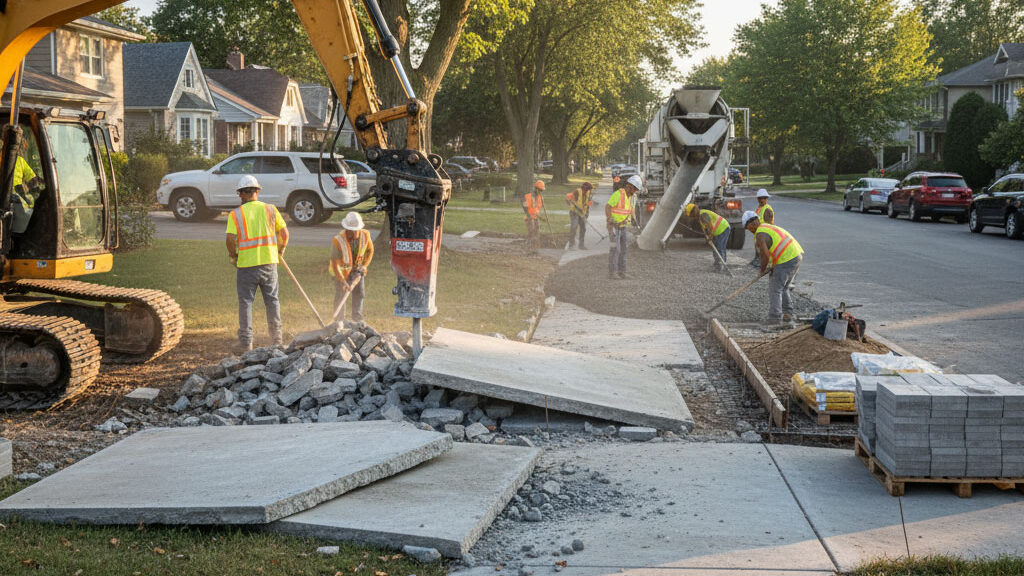
Proper drainage is crucial for maintaining the integrity and longevity of a concrete driveway. Water that pools or flows improperly can cause cracks, erosion, and surface damage over time. Without professional planning, even a well-constructed driveway may face costly repairs.
Concrete driveway contractors have the expertise to address drainage issues effectively. Their solutions ensure that water is directed safely away from your property, protecting both the driveway and your home’s foundation.
Identifying Drainage Problems
Before any work begins, contractors carefully assess how water behaves around your driveway. Understanding the problem is the first step toward an effective solution.
- Check for standing water after rain or snowmelt.
- Inspect slope and grading to ensure water flows away from structures.
- Look for soil erosion along driveway edges.
- Assess existing drainage systems like gutters and French drains.
Accurate identification prevents trial-and-error fixes. Proper assessment ensures the chosen solutions address the root cause, not just the symptoms.
Slope and Grading Adjustments
One of the primary methods contractors use to improve drainage is adjusting the driveway’s slope and grading. Even a slight correction can prevent water pooling.
- Create a gentle slope directing water toward drainage areas.
- Use compacted base materials to maintain stability.
- Ensure proper transition to surrounding landscaping to avoid runoff issues.
- Avoid depressions or uneven spots that trap water.
Correct grading ensures water moves away efficiently. A well-graded driveway reduces stress on concrete and prolongs its lifespan.
Installing Drainage Solutions
Concrete driveway contractors often integrate drainage systems to manage excess water effectively. These systems prevent erosion and structural damage.
- French drains collect and divert water underground.
- Channel drains installed across the driveway surface handle surface runoff.
- Catch basins collect water from larger areas and connect to storm drains.
- Permeable pavers allow water to filter through rather than pool.
Proper drainage installation protects the driveway and surrounding property. It also prevents costly repairs and maintenance in the future.
Sealing and Waterproofing Techniques
Water can seep into cracks and weaken concrete over time. Contractors use sealing and waterproofing to prevent this type of damage.
- Apply concrete sealers to block moisture penetration.
- Fill existing cracks to prevent water from entering.
- Use joint fillers for expansion gaps to keep water out.
- Maintain sealers regularly for long-lasting protection.
Sealing and waterproofing add another layer of defense against drainage-related damage. This ensures your driveway remains strong and attractive for years.
Regular Maintenance and Monitoring
Even after proper installation, ongoing maintenance is essential to keep drainage systems functioning effectively. Contractors provide guidance for routine care.
- Clean drains and gutters to prevent clogs.
- Inspect slopes and drainage areas for shifting or erosion.
- Check for cracks or surface damage caused by water.
- Schedule professional inspections periodically to catch issues early.
Regular monitoring ensures that minor drainage problems do not escalate into major repairs. Preventive maintenance keeps your driveway durable and safe.
Ensuring Your Driveway Stays Durable and Functional
Handling drainage issues is a critical part of concrete driveway installation and maintenance. Proper grading, drainage systems, sealing, and ongoing care protect your investment from water damage.
Hiring experienced contractors ensures that your driveway remains durable, functional, and visually appealing. Effective drainage solutions save money, prevent damage, and provide long-term peace of mind.

